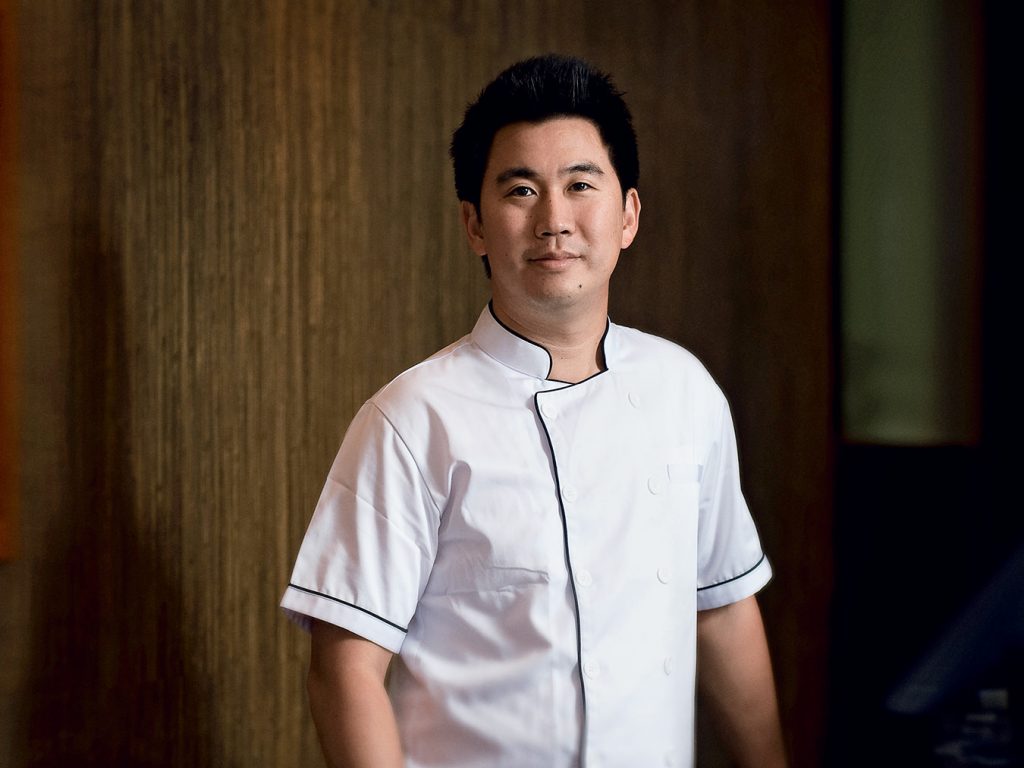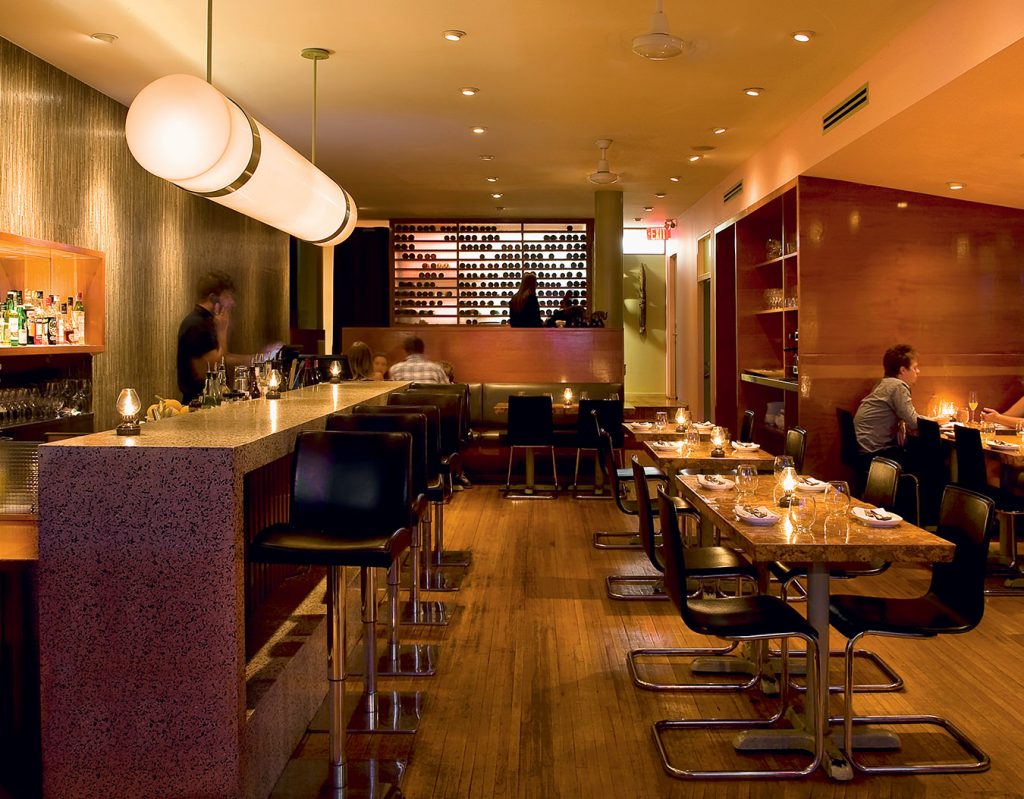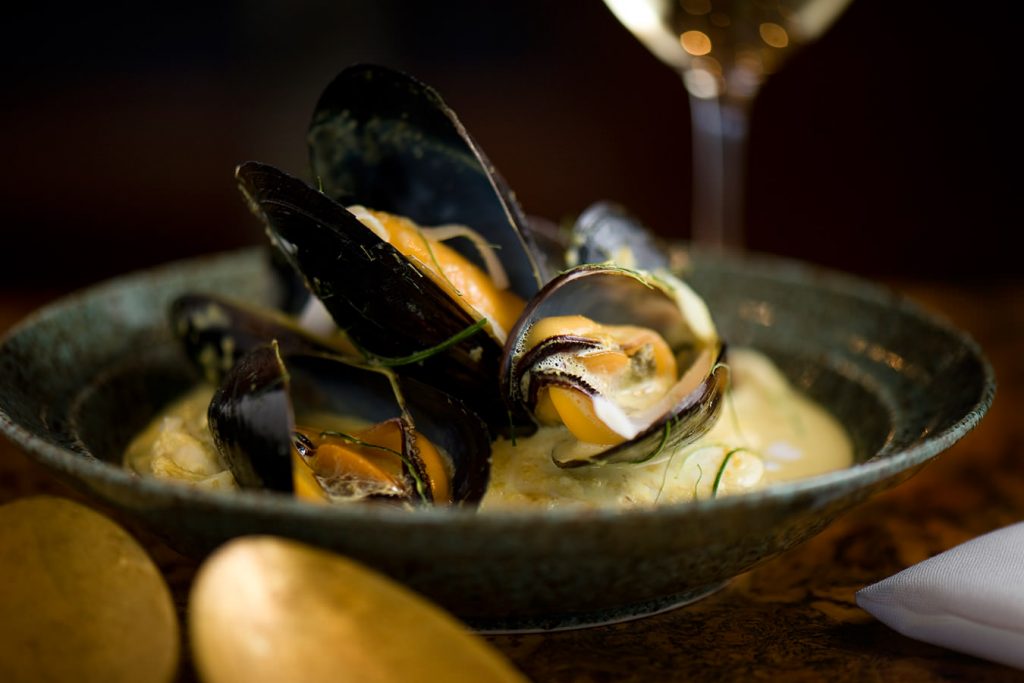In an industry not short on ego, one of Angus An’s most refreshing attributes is the chef’s apparent utter lack of one. It’s safe to say that anywhere other than Vancouver, the co-owner and chef of Vancouver’s stellar Maenam would be a household name punctuated by accolades. But An has maintained a low profile almost since Maenam’s opening day in May 2009, a scant three weeks after he and his wife, Kate Auewattanakorn, shuttered their original concept, Gastropod. Few chefs are as sanguine or as business grounded in knowing just when to cut their losses.
An and Auewattanakorn had returned to Vancouver from London, fresh from working for internationally renowned Australian chef David Thompson at Nahm, the first Thai restaurant in the world to be awarded a Michelin star. An describes his sojourn with Thompson in London as a bit of a detour. “I’d always thought of Thai as a sweeter version of Chinese food,” he says, laughing. “But working with David really opened my eyes. I was blown away by his cooking.” It also proved a useful ingredient to An’s classically grounded European styles. “I love those hugely intense, bright flavours. Thai is one of the few cuisines I know that uses a lot of limes and chilies. I wanted to train my palate so when I went back to Western cooking, it would be more sensitive.”
In Thompson, An discovered a true mentor. “I worked for a lot of different people. I enjoyed the freedom that Normand Laprise gave me [at Montreal’s Toqué!]. Whereas David—he’s very intense, but he’s also very sensitive and caring. If he weren’t a chef, he’d probably be a college professor, just by the way he talks. I like the way he teaches,” says An, who also cooked at the Fat Duck and Le Manoir aux Quat’Saisons. “I ended up with David because I knew I could learn a lot.”
An finally set up shop in Vancouver in the form of fine dining–inclined Gastropod, which had always been the couple’s dream. But after just a couple of years, An realized that molecular cuisine and sous vide had lost their sparkle. In fact, dampened by the growing recession, formal dining overall was very much on the wane. Even his once-successful neighbours had seen the writing on the wall, and moved on. “Gastropod was trending in the wrong direction. I thought it was a lull but it just kept going,” he muses. “With the economy the way it was, we decided it was better to just switch.”
“I love those hugely intense, bright flavours. Thai is one of the few cuisines I know that uses a lot of limes and chilies. I wanted to train my palate so when I went back to Western cooking, it would be more sensitive.”
An and Auewattanakorn reasoned that their chance of success was better with food that people might enjoy as often as once or twice a week, rather than trying to be a special-occasion restaurant. Moreover, the couple had long felt Vancouver to be lacking a “serious” Thai room. (Their original plan had been to remedy that once Gastropod was firmly on its feet.)
After the wraps came off Maenam in the gently remodelled space, An was able to showcase his hallmark: the seamlessness with which he manages to blend those classic and traditional Thai elements of sweet, sour, salt, and heat. But there’s also a refreshingly keen edge to his cuisine, fuelled by a keen understanding of—and appreciation for—local and often organic ingredients.
Crispy fried oysters in spicy citrus nahm jim sauce, green curry of halibut, and green papaya salad fast became stalwarts among the crowd of regulars who quickly spread the word about Vancouver’s destination Thai room. Beyond the smartly crafted plates, An also broke the mould on typically mundane drinks selections by offering well-chosen wines to match the cuisine, as well as inventive cocktails. And in recent months, the chef has expanded his menu with seafood offerings that further raise the bar, such as eight-spice crispy sea bream and a fiery black-pepper whole Dungeness crab, which must be ordered a day ahead.
An still has no regrets about his midstream shift. “We decided to offer a different type of food at a price point that works and in a dining style that suits the city’s more relaxed personality,” he says. “I wanted to give myself every chance to succeed.” Indeed, he more than has.
Photos: Hamid Attie.












